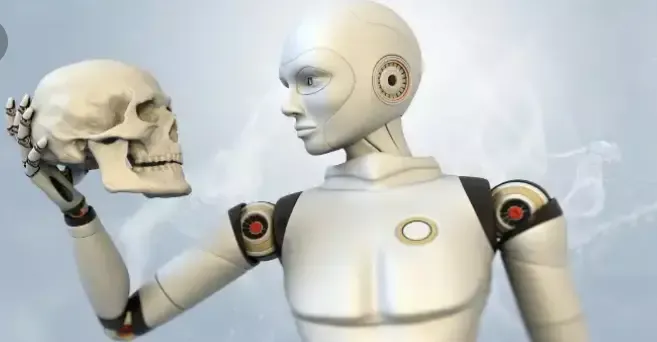
From transporters and lightsabers to spaceships that can travel speedier than the speed of light, cutting edge gadgets that lie outside humankind's ability to understand until further notice, in any event are a staple of sci-fi. But then after some time, individuals have relentlessly propelled the limits of what innovation can do. For a few, this raises worries about whether we ought to give careful consideration to science fiction's wake up calls about the shrouded expenses of depending too intensely on tech especially with regards to robots and man-made reasoning (AI).
As machines turn out to be perpetually advanced and concentrated, and maybe even start to have an independent perspective, what does that mean for the people who build and rely upon them? Huge numbers of the present feelings of dread about AI focus on the ascent of superintelligent PCs that can defeat people, the NYCC specialists said. As a general rule, the perils of beginning AI may lie in its similitudes to human insight, creator Annalee Newitz told the group of onlookers. AI that rises up out of human-created information would almost certainly be molded by humankind's own particular defects and failings, making it "similarly as messed up and hypochondriac as we may be," Newitz said.
Also, regardless of whether robots can have an independent mind, that doesn't really mean they'll assume control. In Newitz's novel "Independent" (Tor Books, 2017), robots that think and feel as people do are still observed as property, and are contracted to their proprietors for up to 10 years, or until the point that they pay off their assembling costs, she told the group of onlookers. All through mankind's history, bondage has existed as a financial foundation, Newitz said. In an advanced world, this would almost certainly reach out to incorporate insightful robots which could additionally concrete the organization of subjection for individuals too, as it does in her book, she clarified.
Also, it can be hard to foresee how tech that is around today may advance later on, as indicated by the NYCC specialists. Frequently, propelled innovation is presented and broadly utilized without thought of the long haul results, creator Kirsten Miller said amid the board exchange.
The novel "Otherworld" (Delacorte Press, 2017), which Miller co-composed with Jason Segel, investigates a propelled type of virtual reality (VR) that connects every one of the faculties, and inquiries the consequences of putting in months, or even years, in a virtual space. In reality, immersive VR encounters are generally new, however we may locate that, after some time, the innovation could imply itself into day by day life in ways we don't expect, Miller told the group of onlookers. For instance, she asked, who might have speculated five years prior that Facebook an online networking stage could assume a significant part in a presidential decision? What's more, what sudden results may we find in five more years, from the across the board utilization of VR?
"I have an inclination it will go into some extremely dull spots likely more rapidly than we're prepared for," Miller said.
Be that as it may, however sci-fi may here and there appear to be insightful about specific advancements, it doesn't anticipate the future, Miller noted. Or maybe, science fiction goes about as a mirror for current issues that are generally hard to discuss; eventually, even the most cutting edge sci-fi is still about the present, Newitz said. By considering what it could intend to impart a world to savvy machines and addressing whether individuals could in the long run acknowledge the mankind of a reasoning robot essayists can attract consideration regarding inescapable disparities among individuals in the public eye today, specialist Sylvain Neuvel told the group of onlookers.
Keep it real, and thanks for Reading..
M u c h - l o v e,
A t u l - M i s h r a - (S o o k s h m a).
Image Copyright: http://noticias.universia.es/ciencia-tecnologia/no
Thank you @sookshma for this post.
I would imagine that the most convincing and immersive virtual reality would have to be so apparently 'real', and we spent so much time within it, that we may forget it's not real.
In order to ease the constant stimulation of attention, the awareness would have to re~energize by appearing to sleep...for a while, until someone in the game walks up to them and says, "Hey, it's just a game, this is not the real you. You are someone and somewhere else 'pretending' this is real."
Or maybe they won't...who knows?
All the best!
Its sounds real and meaningfull...
Thank you so much